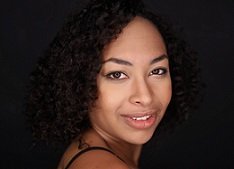Honesty is a natural behavior that toddlers, who are learning the English language, put into practice by stating random facts that are blatantly true. For example, a toddler may point at a bottle of milk and say “milk”. Afterward, they will look to the parent or person around for the approval of what they just did. This is where we learn that Fact = Truth. They either receive a happy yes or a scolded no. As a child, we do this all the time until we say something that hurts someone else. A child may look at a person’s hair and say out loud, “Mommy, her hair is black and blonde”. The child is then reprimanded by the parent. The majority of the child’s learning up until this point has been to be observant and identify what they see. So, why was this moment different? Well, the woman naturally had jet black hair and her roots were growing out. The child was just identifying that the woman had two different hair colors. The child couldn’t have known that to point out the woman’s roots would cause her to be offended. However, the child was still punished for the action that they had been taught to practice all along.
At this age, we also are learning another aspect of honesty. Let’s say a kid breaks something while the parent wasn’t looking. The parent asks them if they broke it. Out of fear of getting in trouble, the kid lies and says, “No”. The parent then says “Are you telling the truth?…Tell me the truth.” The child confesses that they broke the item and at that moment they learn the lesson Honesty = Truth. I bring up these examples because many times as an adult I have heard people say that they value honesty the most in a person. However, I have also experienced seeing these same people become upset because of this same honesty that they value so much. So it leads me to the question, “Do we really want honesty?”. When people speak of honesty it is usually seen as an admirable and attractive characteristic. However, oftentimes honesty can be very ugly.
I am not perfect. I have said things bluntly and honestly that may have caused someone to be hurt or offended. I may not have even realized it because I thought I was just doing what they wanted me to do. Be honest. Honesty equals telling the truth, right? I have even said things honestly about people’s personalities and their bodies without a second thought. Those same people have since come to me and expressed how much I hurt them. I, of course, apologize and take full responsibility for causing them harm. However, that still leaves my question unanswered. Do we really want honesty? I later realized, through analyzing my relationship with my mom, what people may really want. Every time I come home my mother points out something on my body as if I don’t already know it’s there. It is my body. At some point in adulthood, I asked myself why do I ask my mother questions if I don’t like her answers? What do I want from her? She is being honest. She is just telling the truth, right? Then it clicked. Her honesty is her truth, not mine. I wanted to hear my truth from her mouth. I wanted her to read my mind and give me the validation that I needed from her without clearly communicating what I needed from her at all. I could be speculating here, but what if that’s what we are doing with everyone in our lives. What if, we are passing along what we hold as our truths on to other people thinking it’s their truth as well, and what if they aren’t clearly telling us what they need at that moment whether it’s our honest truth or comfort/validation.
Some people may argue with me and say, “Well sometimes people want validation for bad actions. Why would I validate bad actions?”. That may very well be true. I feel like I’m back in my college philosophy class when I say this but, they did a bad action according to what or whom? What constitutes a good or bad action? Depending on the person and their situation anyone can justify their actions as good or bad. One thing is for sure, whatever they choose to do is a reflection of their truth on the inside. So I guess before giving your answer, clearly ask them “Do you want my honest truth or do you want validation for your actions?”. Then depending on their answer, either give it to them or don’t. Our world is not someone else’s world, our truth is not someone else’s truth. In knowing that, I don’t believe that we can assume that the other person will know what kind of honesty we need or want from them. Nor, can we assume that the honesty we have is the honesty that a person wants or needs. At that moment, I guess you will learn whether your truth lines up with someone else’s truth. That then leads me to another question, should we only surround ourselves with others whose truths line up with our own? What are your thoughts?


